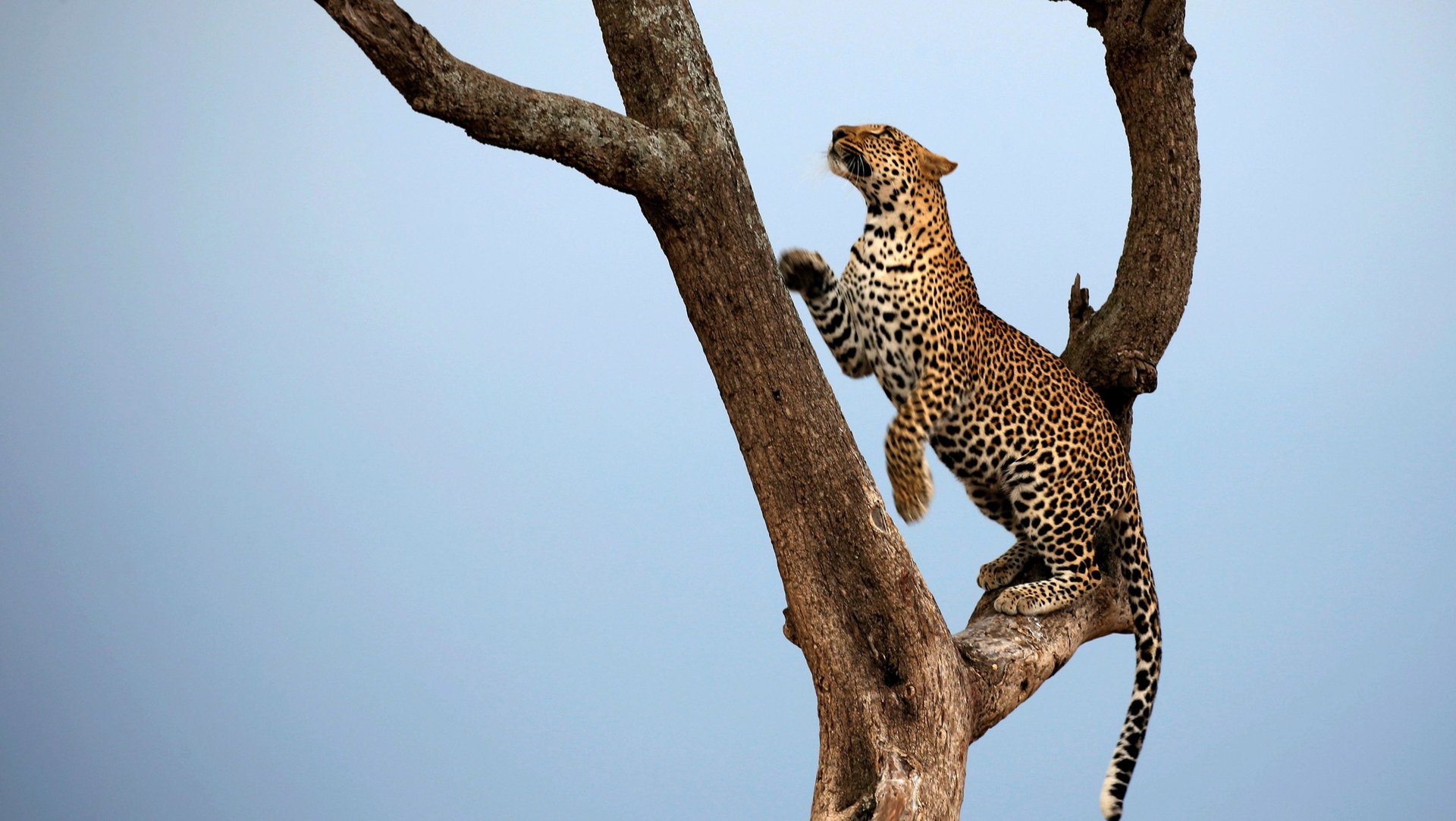No, these are not the photos of the first black leopard seen in Africa in a century
For decades, the black leopard proved elusive in Africa.


For decades, the black leopard proved elusive in Africa.
Yet the big cat’s presence in the continent is gradually drawing the attention of scientists, wildlife photographers, and even fans of fictional superheroes like Marvel’s Black Panther. The melanistic leopards, also called panthers, are usually found in tropical forests in Southeast Asia, where their black fur gives them camouflage amid the thick vegetation.
But increasingly, the black-furred leopard has been spotted in Kenya, pushing researchers to undertake studies to understand the species’ prevalence, its population dynamics, and movement in arid and semi-arid environments.
This week, British photographer Will Burrard-Lucas announced that he captured the photo of a young female black leopard at the Laikipia Wilderness Camp in central Kenya. Researchers from the San Diego Zoo also published rare video and photo footage along with a research paper from late January they say provided the first scientific documentation of a black leopard in Africa in nearly a century.
The publication of Burrard-Lucas’s photos drew global admiration but also pushback after media outlets labeled them as the first photos of a black panther to be seen in the continent decades. Kenya’s Daily Nation newspaper reported that its then-photojournalist Phoebe Okall spotted and shot the animal in Ol Jogi Conservancy in 2013. Ol Staff at Ol Ari Nyiro Conservancy in western Laikipia also reportedly saw the leopard in 2007.
Burrard-Lucas said in a blog post that he had contacted and received assistance from local community members who helped trace the leopard’s tracks. In a postscript, he also noted that he never claimed that he had taken the first photos of a black leopard in Africa. “I do however believe that they are the first high-quality camera trap photographs.”
In a subsequent update, Burrard-Lucas said concerns were made “that the leopard may now be a target for trophy hunters.” This would prove unfortunate, especially given that African leopards are already listed as vulnerable from hunting and conflict with herders and farmers by the International Union for Conservation of Nature.
Sign up to the Quartz Africa Weekly Brief here for news and analysis on African business, tech and innovation in your inbox